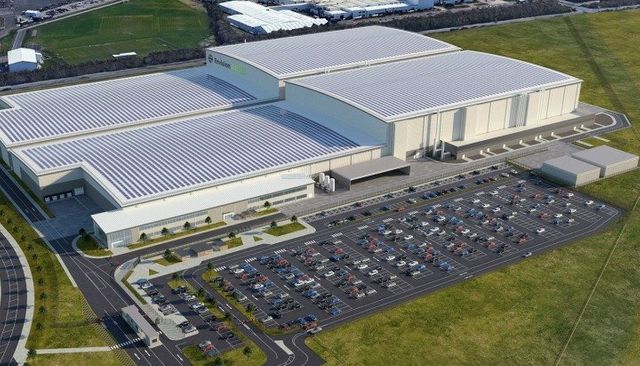
This month, the UK’s first Gigafactory projects were unveiled to the public. Britishvolt’s factory in Northumberland will create around 300,000 EV (electric vehicle) battery packs per year – as well as 3,000 jobs – and Nissan’s £1bn factory in Sunderland, which will create a further 1,600 jobs.
The two new projects will bolster the UK’s manufacturing industry, particularly in the North East region where both will be located. Speaking on the announcement, Prime Minister Boris Johnson said:
“Building on over 30 years of history in the area, this is a pivotal moment in our electric vehicle revolution and securing its future for decades to come.
“Commitments like these exemplify our ability to create hundreds of green jobs and boost British industry, whilst also allowing people to travel in an affordable and sustainable way so we can eliminate our contributions to climate change.”
Seemingly sticking to his manifesto’s commitments, Johnson had promised to accelerate growth in the EV sector. Among these pledges, £500m of development funds was promised with the aim of making the UK a more interesting opportunity to international investors.
Seemingly, the approach has worked, as Nissan will create its new-generation all-electric car exclusively in Sunderland. Coupled with investment from Envision AESC – the battery arm of global green tech group, Envision Group – a 9GWh plant will be constructed in a ‘transformational’ project for the region.
The factory will run entirely off renewable energy and will be used to develop next-generation battery technologies, with a new model in the pipeline that boasts 30% more energy density.
Around 4,600 high-skilled jobs will be created by both of the proposed Gigafactory projects, and in areas of the UK where employment is really needed. The unemployment rate in Northumberland sits at around 5.4%, and in Sunderland around 6%, both notably higher than the 4.5% national average.
The trend away from industrialisation has been consistent in most mature western nations, and the UK is certainly no exception. In 1948, manufacturing made up about 48% of the country’s economy, falling to 25% in 1970, and then 13% in 2013, replaced largely by the services industry.
This new breed of high-tech manufacturing could represent a real opportunity for the UK to revitalise its industry. If the government continues to invest wisely, the next generation of manufacturing could come to define a new green era for the UK.
The demand for electric vehicles and their constituent parts is likely only to rise in the coming years and decades and will only be accelerated further by the gradual rollout of eco-conscious legislation. Our own government has pledged £1.3bn to the rollout of charge points, as well as £582m in grants for those buying low/zero-emissions vehicles.
There is an EV-manufacturing-shaped hole in the UK’s economy and, for now at least, it seems our government is doing a decent job of plugging it. In the years to come, it will be interesting to see how the UK positions itself in the burgeoning EV market and what impact this might have on our economy and job market. Judging from the present moment, however, the future of manufacturing in the UK looks very bright indeed.
Polestar has worked with many firms in the manufacturing and green industry space who are either seeking fund raising or investment to accelerate growth. In fact, last month we wrote a valuations report specifically focusing on the manufacturing industry – click here to download and read for yourself.
Finally, if you’d like to learn more, don’t hesitate to pick up the phone to us – we’re always happy to help.
Once commissioned, the gigafactory is forecast to produce enough lithium-ion cells for approximately 300,000 electric vehicle battery packs every year